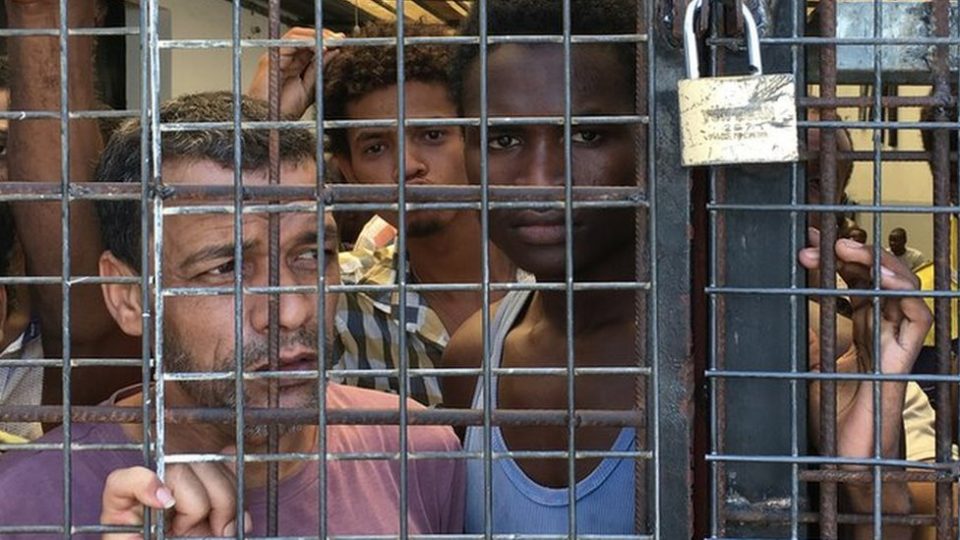Migrants rescued from the Mediterranean Sea have told The Associated Press they were tortured and their families were extorted for ransoms while they were held in Libya’s government detention centers.
Their accounts come as a United Nations report last week found evidence of possible crimes against humanity committed against migrants intercepted at sea and turned over to Libya.
The Associated Press spoke with more than two dozen African migrants who were held over the past four years.
Osman Touré and his close friend Amadou Traoré are still haunted by memories of their yearslong ordeal in Libya.
Touré said the people responsible for the trafficking “treated us like sheep”, recalling his time in Libya.
The two Guinean migrants were among tens of thousands of migrants who languished in Libya’s government-run detention centers.
There, they endured some of the worst kinds of ill-treatment, including torture and sexual violence, violations that may amount to crimes against humanity, according to U.N.-commissioned investigators.
On board the Geo Barents, a rescue vessel operated by the Doctors Without Borders group, the Associated Press spoke two dozen migrants who were held in different detention centers in Tripoli and surrounding areas in the past four years.
The migrants said guards had beaten, tortured, and forced them to call their relatives to pay for their release.
Their bodies showed traces of old and recent injuries, and signs of bullet and knife wounds on their backs, legs, arms and faces.
U.N. officials and activists said the ransom practice is rife inside official detention centers, which could explain the disappearance of thousands of Europe-bound migrants who were intercepted and returned to Libya.
The Libyan coast guard, which is trained and equipped by the European Union, intercepted some 26,000 Europe-bound migrants in the Mediterranean so far this year, according to the U.N. migration agency.
However, only about 7,000 have been accounted for in official detention centers in the North African country, according to the U.N.
The European Union has sent 455 million euros (525 million USD) to Libya since 2015, largely channeled through U.N. agencies and aimed at beefing up Libya’s coast guard, reinforcing its southern border and improving conditions for migrants.
However, huge sums have been diverted to networks of militia and traffickers who exploit migrants, according to a 2019 AP investigation.
Libya has emerged as the dominant transit point for migrants fleeing war and poverty in Africa and the Middle East, hoping for a better life in Europe.
But the lawlessness has made Libya’s detention centers rife with abuses, according to rights activists and migrants who make it out.
So far this year some 44,000 people have reached European shores by crossing the central Mediterranean from Tunisia and Libya, often at the hands of smugglers who put them on unseaworthy boats.
Roughly half of those who arrived disembarked on Lampedusa, an Italian island closer to North Africa than Italy.

